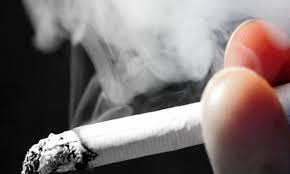The 194 Member States of the World Health Organisation (WHO) have finally ratified the framework on tobacco control.
The ratification, according to WHO, comes almost six years after the first protocol was adopted.
The WHO Framework Convention on Tobacco Control (WHO FCTC) announced
that with the ratification of the UK, the necessary number of parties to
the Protocol to Eliminate Illicit Trade in Tobacco Products has been
reached for its enter into force in 90 days.
that with the ratification of the UK, the necessary number of parties to
the Protocol to Eliminate Illicit Trade in Tobacco Products has been
reached for its enter into force in 90 days.
It’s a “clear message of the international community’s commitment to
combating illicit trade in tobacco products worldwide,” said WHO
Director-General Tedros Ghebreyesus, adding that it’s the “first step in
the path for the elimination of illicit trade of tobacco products
worldwide.”
combating illicit trade in tobacco products worldwide,” said WHO
Director-General Tedros Ghebreyesus, adding that it’s the “first step in
the path for the elimination of illicit trade of tobacco products
worldwide.”
The WHO regarded the protocol as a milestone in the history of
tobacco control, as it contains a full range of measures to combat
illicit trade distributed in three categories: preventing illicit trade,
promoting law enforcement and providing the legal basis for
international cooperation.
tobacco control, as it contains a full range of measures to combat
illicit trade distributed in three categories: preventing illicit trade,
promoting law enforcement and providing the legal basis for
international cooperation.
Moreover, it aims to secure the supply chain of tobacco products,
through licensing, due diligence and record keeping, and requires the
establishment of a global tracking and tracing regime that will allow
governments to effectively follow up tobacco products from the point of
production to the first point of sale.
through licensing, due diligence and record keeping, and requires the
establishment of a global tracking and tracing regime that will allow
governments to effectively follow up tobacco products from the point of
production to the first point of sale.
The protocol also provides for intensive international cooperation
including on information sharing, technical and law enforcement, mutual
legal and administrative assistance, and extradition.
including on information sharing, technical and law enforcement, mutual
legal and administrative assistance, and extradition.
Adopted in 2012 at the fifth session of the Conference of the Parties
to the WHO FCTC, the protocol was developed in response to the growing
international illicit trade in tobacco products, which poses a serious
threat to public health.
to the WHO FCTC, the protocol was developed in response to the growing
international illicit trade in tobacco products, which poses a serious
threat to public health.
According to the WHO, illicit tobacco trade has been fuelling the
tobacco epidemic and undermining tobacco control policies, by increasing
the accessibility and affordability of tobacco products.
tobacco epidemic and undermining tobacco control policies, by increasing
the accessibility and affordability of tobacco products.
It also causes substantial losses in government revenues, and at the
same time contributes to the funding of transnational criminal
activities.
same time contributes to the funding of transnational criminal
activities.
The objective of the protocol is the elimination of all forms of
illicit trade in tobacco products, in accordance with the terms of
Article 15 of the WHO FCTC, which addresses means of countering illicit
trade in tobacco products, a key aspect of a comprehensive tobacco
control policy.
illicit trade in tobacco products, in accordance with the terms of
Article 15 of the WHO FCTC, which addresses means of countering illicit
trade in tobacco products, a key aspect of a comprehensive tobacco
control policy.





